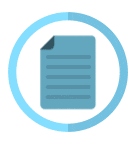Teachers' and Students' Perspectives on Discovery Learning at Elementary School for Reading Comprehension
DOI:
https://doi.org/10.31597/sl.v9i1.1020Keywords:
discovery learning, reading comprehension, elementary schoolAbstract
This study aimed to investigate EFL learners’ and teachers’ perspectives on using the Discovery Learning method towards the students’ reading story comprehension. For this purpose, one teacher was interviewed and the thirteen students of Tambaagung Ares Elementary School were given questionnaires related to the benefit, interests, activities, and implementation strategies of Discovery Learning. Based on the analysis of the data collected, students and teachers had positive perspectives of Discovery learning to be implemented in Elementary school.
References
Ali, M. (2018). Pengaruh Model Discovery Learning terhadap Hasil Belajar Peserta Didik pada Konsep Jamur. Bioedusiana, 4(2), 59–63. https://doi.org/10.34289/277895
Ananda, P. D., & Atmojo, S. E. (2022). The Impact of the Discovery Learning Model on Problem- Solving Ability and Scientific Attitude of Elementary School Teacher Education Students. International Journal of Elementary Education, 6(2).
Effendi, L. A. (2012). Pembelajaran Matematika Dengan Metode Penemuan Terbimbing Untuk Meningkatkan Kemampuan Representasi Dan Pemecahan Masalah Matematis Siswa Smp. 13(2).
Fitriani, W., Haryanto, H., & Atmojo, S. E. (2020). Motivasi Berprestasi dan Kemandirian Belajar Mahasiswa saat Pembelajaran Daring. Jurnal Pendidikan: Teori, Penelitian, dan Pengembangan, 5(6), 828. https://doi.org/10.17977/jptpp.v5i6.13639
Putra, D. S., Lumbantoruan, A., & Samosir, S. C. (2019). Deskripsi Sikap Siswa: Adopsi Sikap Ilmiah, Ketertarikan Memperbanyak Waktu Belajar Fisika dan Ketertarikan Berkarir di Bidang Fisika. Tarbiyah : Jurnal Ilmiah Kependidikan, 8(2), 91. https://doi.org/10.18592/tarbiyah.v8i2.3339
Rahmayani, A., Siswanto, J., & Arief Budiman, M. (2019). Pengaruh Model Pembelajaran Discovery Learning dengan Menggunakan Mediavideo Terhadap Hasil Belajar. Jurnal Ilmiah Sekolah Dasar, 3(2), 246. https://doi.org/10.23887/jisd.v3i2.18055
Saputri, A. E., & Djumhana, N. (2020). Keterampilan Proses Sains dan Sikap Ilmiah Mahasiswa PGSD dalam Belajar Ilmu Pengetahuan Alam (IPA). DWIJA CENDEKIA: Jurnal Riset Pedagogik, 4(1), 35. https://doi.org/10.20961/jdc.v4i1.36019
Saridewi, N., Suryadi, J., & Hikmah, N. (2017). The Implementation of Discovery Learning Method to Increase Learning Outcomes and Motivation of Student in Senior High School. Jurnal Penelitian Dan Pembelajaran IPA, 3(2), 124. https://doi.org/10.30870/jppi.v3i2.782
Sofeny, D. (2017). The Effectiveness of Discovery Learning In Improving English Writing Skill Of Extroverted And Introverted Students. Jurnal Penelitian Humaniora, 18(1), 41. https://doi.org/10.23917/humaniora.v18i1.3639
Susilo, A., & Sarkowi, S. (2018). Peran Guru Sejarah Abad 21 dalam Menghadapi Tantangan Arus Globalisasi. Historia: Jurnal Pendidik dan Peneliti Sejarah, 2(1), 43. https://doi.org/10.17509/historia.v2i1.11206
Tampubolon, D. (2018). Students’ Perception on the Discovery Learning Strategy on Learning Reading Comprehension at the English Teaching Study Program Christian University of Indonesia. JET (Journal of English Teaching), 3(1), 43. https://doi.org/10.33541/jet.v3i1.698
Downloads
Published
How to Cite
Issue
Section
License
1. Copyright of this journal is possession of Editorial Board and Journal Manager, by the knowledge of author, whilst the moral right of the publication belongs to the author.
2. Legal formal aspect of journal publication accessibility refers to Creative Commons Atribution-ShareAlike (CC BY-SA), implies that this license lets others remix, adapt, and build upon your work even for commercial purposes, as long as they credit you and license their new creations under the identical terms. This license is often compared to “copyleft” free and open source software licenses.
3. Every publications (printed/electronic) are open access for educational purposes, research, and library. Other that the aims mentioned above, editorial board is not responsible for copyright violation















